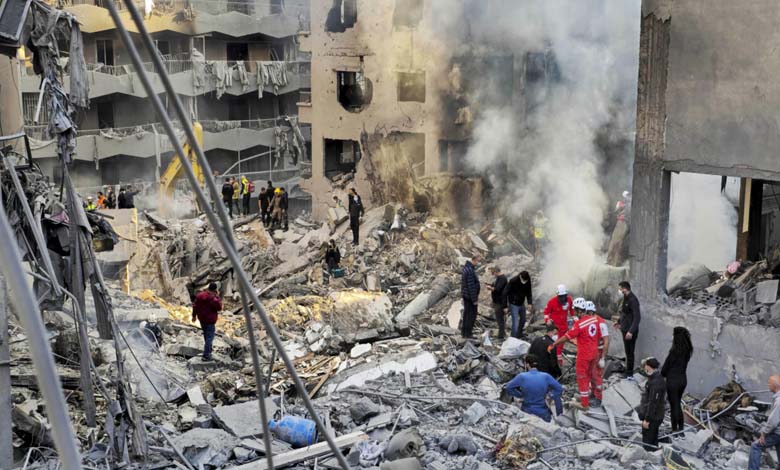The Ceasefire Agreement Does Not Restore Safety to Northern Israel’s Residents
Residents of Kiryat Shmona insist they will not permanently return to the town unless "complete security" is achieved.

After months of air-raid sirens and Hezbollah rockets, Kiryat Shmona in northern Israel has regained relative calm with the ceasefire. However, the streets of this border town remain largely deserted, with occasional visits by residents who stress they will only return if “complete security” is guaranteed.
-
From Basta to Bazourieh: Hezbollah Strongholds “Ignite” Lebanon
-
Israel Threatens Hezbollah Leaders: Defeating the Party with the Weapon of “Chaos”
Most of Kiryat Shmona’s residents fled at the start of the escalation between Israel and Iran-backed Hezbollah over a year ago. Some briefly return to check on their homes, like Rahel Rivash, who took advantage of the truce to collect personal belongings.
This woman in her fifties considers the ceasefire between Israel and Hezbollah fragile, asking, “Why don’t I move back here? Because I want to return with complete safety.”
She adds, “As long as I hear explosions and see the Israeli army in Lebanon, I won’t return. There are no infrastructures here, no educational system, no jobs—nothing.”
-
After his death… Who is Salim Ayyash, Hezbollah member convicted of killing Rafic Hariri?
-
Report: Houthis Violate Childhood in Summer Camps and Hezbollah Interferes with School Curricula
Pointing to destroyed houses, wounded residents, and “broken families,” Rivash highlights the issues that must be resolved before life can return to normal.
The conflict between Hezbollah and Israel erupted when the Lebanese party opened a “support front” for Gaza and its ally Hamas in October 2023, following the outbreak of war between Israel and the Palestinian movement.
After nearly a year of cross-border shelling, Israel intensified airstrikes against Hezbollah and launched ground operations in southern Lebanon in September.
-
Does Hezbollah’s Defeat Mark the End of the Iranian Era?
-
“Sleeping Cells” in Europe and America: Hezbollah’s “Specter” of Retaliation against Israel
This escalation triggered mass displacement on both sides of the border. When the ceasefire took effect early Wednesday, roads in Lebanon were filled with displaced persons returning home, particularly in the south near the Israeli border.
In Israel, the government expressed its “desire” for residents to return to northern areas but has refrained from actively encouraging them for now.
Doron Schnaber, spokesperson for Kiryat Shmona’s municipality, stated, “Residents have not returned and won’t do so until the war is officially declared over.”
-
Hezbollah and the Death of Nasrallah… the End of an Era?
-
Netanyahu reveals Hezbollah’s plan to invade northern Israel
Hezbollah regularly targeted this town and others in northern Israel, leaving behind damaged roofs, shattered tiles, and burnt-out vehicles.
For months, the Israeli army designated Kiryat Shmona and other towns as closed military zones. On October 9, rocket fire from Lebanon killed two people there.
Schnaber expressed “mixed feelings” about the truce, stating, “For now, we only have a ceasefire agreement. Based on past experiences, such agreements have always been fragile. If residents return and rockets fall again, what would have been the point of relocating for a year and two months?”
-
Israel’s Attempt to Break ‘Al-Qard Al-Hassan’: Cutting Hezbollah’s Financial Channels
-
Tense Atmosphere in Beirut Due to Displaced People from Hezbollah Strongholds
A few kilometers to the east, in Kibbutz Menara near the border, artillery and small arms fire could still be heard Friday in southern Lebanon.
Schnaber added, “We truly want the war to end, but we want it to end with absolute victory, eliminating the threat—not through signing a paper we don’t believe in.” He further stated, “We demand Hezbollah’s defeat and eradication.”
Meir Ben Hemo, a resident of Kiryat Shmona, believes, “People won’t return here. It will be extremely difficult for them.” He thinks it will take “a long time” for the town to regain a sense of safety similar to previous years.
-
Hezbollah relies on new leadership whose members are unknown to Israel
-
“New Phase”: Hezbollah Announces Escalation of Clashes with Israel
“This isn’t something that can be achieved overnight. Saying ‘Come back, and everything will be fine’ is a lie,” he added.
The agreement, brokered by the U.S. and France, stipulates Hezbollah‘s withdrawal north of the Litani River, the Lebanese army’s reinforced deployment south of the river, and the handover of positions currently controlled by the Israeli army and Hezbollah within 60 days.
“As long as Hezbollah fighters are not pushed beyond the Litani River, there will be no peace here,” Ben Hemo concluded.
-
Iran Faces a Dilemma… Who Will Be the Successor to Hezbollah?
-
Finances under fire: Hezbollah faces financial crisis












